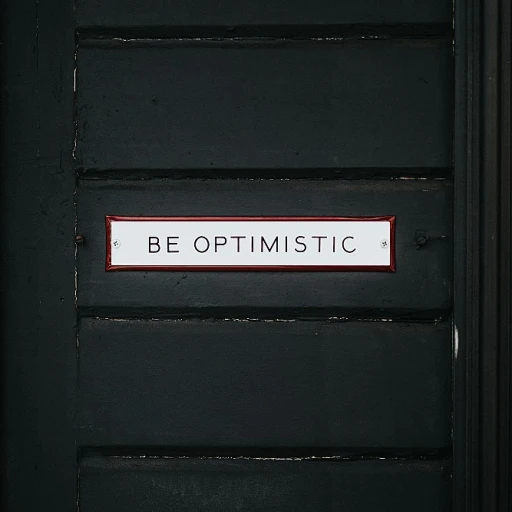Social Marketing Unpacked: A Definition and Its Distinguishing Features
What Makes Social Marketing Unique
Imagine a world where social efforts and marketing blend seamlessly to inspire positive actions. That's the heart of social marketing. At its core, social marketing is more than just raising awareness; it's about driving societal change. Unlike traditional marketing's focus on individual gain, social marketing's essence is to benefit the public welfare and instigate behavior change for the social good.
Experts like Nancy Lee and Philip Kotler have fortified this concept through their works, including books like 'Social Marketing: Influencing Behaviors for Good.' Through a strategic blend of psychology, technology, and science, social marketing aims to transform health, behavior, and community norms.
For instance, Australia’s renowned 'Slip-Slop-Slap' campaign drastically reduced skin cancer rates by ingraining sunscreen use into everyday life—an impressive example of social marketing’s success. Similarly, an anti-smoking campaign titled 'Truth' has significantly diminished teen smoking rates in the United States. These campaigns, underpinned by societal insights and impactful messaging, showcase the direct connection between social marketing strategies and impactful behavior change.
The Science of Behavior Change
Let's cut to the chase: changing behavior isn't just about spreading the word; it's about strategic nudges towards better choices. The CDC's intervention frameworks and techniques from works like Doug McKenzie-Mohr's 'Fostering Sustainable Behavior: An Introduction to Community-Based Social Marketing' are testimonies to the systematic approach required to shift public behavior. By leveraging principles of behavioral economics and cognitive psychology, social marketing crafts campaigns that resonate deeply with individuals' values and beliefs.
Surveys from the International Social Marketing Association reveal that public health campaigns involving seat belt use have pushed compliance upwards of 85% in certain regions. This metric isn't just a number; it's real lives saved, illustrating how data-driven insights inform the mechanisms of change in social marketing.
Overturning detrimental habits isn't an overnight affair; it requires persistence and finely-tuned messaging that aligns with people’s everyday realities. The nuances of this approach epitomize the work of specialists like Nancy Lee and entities such as the International Social Marketing Association, which advocate for robust, ongoing efforts to recalibrate public perceptions and actions. A healthy dose of creativity often makes the message stick, turning lofty ideas into actionable items that can touch hearts and minds.
The Bedrock of Public Campaigns
A glance at the annual reports from entities like the Social Marketing Association of North America (SMANA) reveals the power of public campaigns underpinned by social marketing strategies. From increasing recycling rates to fighting pandemics, these campaigns are formidable agents of social change. They breathe life into statistical findings, transforming numbers into narratives that spur action.
Real-life applications of these concepts can be seen in the work done to tackle global challenges. Take the Florida-based social marketing efforts to save the state's coral reefs; community-based interventions encouraged local boaters to adopt coral-friendly anchoring habits, proving that even deeply ingrained behaviors can be modulated for the environment's health.
Numbers don’t lie, and when it comes to measuring impact, the meticulous tracking of campaign outcomes is a non-negotiable element of social marketing. It’s about matching heartfelt storytelling with irrefutable statistics—a blend that’s proven to make waves in public sentiment and action.
So, whether it’s on a large scale or through community-based efforts, social marketing's power in driving lasting change should never be underestimated. It's the strategic art of marrying data with human-centric narratives to craft campaigns that don't just inform but transform. And that's what makes social marketing an indispensable tool in the architect's kit for societal betterment.
The Ripple Effect: How Social Marketing Influences Public Health
The Ripple Effect in Public Health
Delve into the expansive reach of social marketing and you'll quickly find its profound influence on public health. At its core, social marketing leverages familiar marketing principles—focus on the target audience, solid message strategy, and persuasive communication—to foster societal well-being. It prioritizes values like health and safety over profit margins, and its success stories are measured in lives improved rather than dollars earned.
Empirical Evidence of Efficacy
Statistical evidence underpins the narrative of social marketing as a decisive force for good. A quintessential example is the anti-smoking campaigns that have swept through the United States, contributing to a steady decline in cigarette use among adults from 42.4% in 1965 to 12.5% in 2020, according to the CDC. It’s a showcase of how well-crafted campaigns can reshape public habits.
Success Stories as Proof Points
Consider the 'Truth' campaign—a tour de force in altering youth perception towards smoking. Employing unvarnished facts and stark visuals, it anchored an emotional connection with its audience, stirring a notable dip in smoking rates among teens. These tangible shifts in behavior clearly demonstrate the potent impact of strategic social marketing on public health outcomes.
Theoretical Underpinnings and Strategic Orientation
Under the helm of social marketing's theoretical constructs, behavior change takes precedence on the checklist of achievements. Doug McKenzie-Mohr, an environmental psychologist, authored 'Fostering Sustainable Behavior'—an insightful take on community-based interventions. His work fortifies the premises of social marketing with empirical strategies that induce behavior modification, leading to healthier communities.
Amplifying Impact Through Collaboration
Crafting social change isn't a solo endeavor. Partnerships between non-profits, public health departments, and educational institutions often become the scaffolding for effective campaigns. For example, the intertwining efforts of organizations like the American Heart Association with local community groups exemplify the collaborative spirit needed to kindle positive change in public health narratives.
Informed by Research and Best Practices
The domain of social marketing thrives on a cycle of continuous improvement, heavily reliant on ongoing research and careful monitoring. Studies published in peer-reviewed journals, such as the 'Journal of Social Marketing', illuminate the best practices and innovative approaches. These include the utilizations of focus groups and pilot studies to glean public sentiment, all critical to shaping campaigns that resonate well with their intended audiences.
Linking Behavior to Broader Social Objectives
At its most efficacious, social marketing dovetails individual behaviors with large-scale social objectives. A sterling illustration is public health initiatives driving vaccinations and check-ups, leading to robust community health standards. In essence, social marketing doesn't just aim to modify behavior—it also ties that change to expansive, socially relevant outcomes.
A Future-Oriented Approach
Looking ahead, social marketing stands as an indomitable tool in the quest for a healthier society. As it evolves, it's primed to face fresh challenges, such as addressing non-communicable diseases and mental health issues, encompassing a future where campaigns are data-driven, precision-targeted, and increasingly personalized in their approach.
Parallels and Pivots: Learning from Commercial Marketing Techniques
Commercial Roots, Social Blooms
At the heart of social marketing lies a rich soil cultivated by commercial marketing practices. Bringing those same key principles to the table, professionals in the social sector meticulously mold them to address societal issues with the finesse of a sculptor. It's a delicate act where understanding human nature isn't just beneficial; it's paramount. By closely observing the methods that commercial entities use to sway the preferences and behaviors of consumers, social marketers can craft campaigns that not only resonate but lead to impactful social good.
From Billboard to Behavior
Consider how a well-crafted advertisement can stick with you, nudging you toward a purchase. The psychology behind this process, seamless transition from sight to purchase, is the same magic that drives a powerful social marketing campaign. By applying insights from consumer behavior studies and tying them into social goals, we see a narrative emerge—one that not only informs but inspires action among the public.
For example, when the Florida "Truth" Campaign sought to reduce youth smoking rates, they didn’t just lecture—they leveraged bold creativity. They unmasked the tactics of tobacco industries, sparking a blend of outrage and empowerment among teens. The result? A stunning CDC report showed a significant drop in teen smoking, true testimony to the power of adopting commercial marketing savvy.
Subtle Shifts, Major Milestones
The trick isn’t in reinventing the wheel; it's about painting it with new colors that guide individuals towards healthier, more sustainable behaviors. Features like catchy jingles, compelling narratives, and celebrity endorsements are repurposed to serve a cause. The end game? To make the healthier choice the easier, more attractive one. Effective social marketing doesn't clash with human nature; it channels it towards positive change.
An exciting example comes from the work of Doug McKenzie-Mohr, an environmental psychologist who champions community-based social marketing. In his influential book, "Fostering Sustainable Behavior: An Introduction to Community-Based Social Marketing," McKenzie-Mohr lays out strategies proved to alter community norms and individual behaviors—without the hard sell.
Blending Wisdom, Not Just Strategies
Learning from commercial marketing is about more than imitation; it’s about integration. Seasoned social marketers understand the gravity of research and data—the very backbone of any successful marketing strategy. By analyzing past campaigns' successes and failures, organizations evolve their approach. It's a blend of street-smart intuition and book-smart research that drives the innovation in this field.
One such example can be found in the International Social Marketing Association, which underscores the importance of strategic planning mixed with the agility of on-the-ground tactics. Organizations seeking to heighten their social impact could benefit from exploring how professional networks bolster strategic operations, as laid out engagingly on The Connective Tissue of Success, providing a nuanced look at leveraging networks for strategic success.
Community-Based Strategies: Grassroots Efforts in Social Marketing
The Bedrock of Change: Grassroots Movements in Social Marketing
In the arena of social marketing, there's a compelling narrative that often doesn't get the marquee space it deserves – the grassroots movements that are the lifeblood of sustained change in communities. When individuals unite over a common cause, the aggregate of their efforts can set the stage for monumental shifts in public behavior.
Take, for example, the community-based approach that tackled smoking cessation. By engaging local leaders, deploying volunteers for peer-to-peer education, and creating supportive networks for individuals trying to quit, these initiatives illustrated that behavior change isn't just a mandate from above but can be fostered from within the community fabric.
One study that lends credence to the efficacy of community-based social marketing is one conducted by Doug McKenzie-Mohr. In his seminal book 'Fostering Sustainable Behavior', McKenzie-Mohr elucidates how community-driven campaigns can significantly alter behaviors when they tap into social norms and provide actionable strategies tailored to specific locales.
Gleaning Wisdom from Local Insights
The strongest community programs flourish under a canopy of genuine understanding and consideration for local conditions. These campaigns often hinge on the insights gathered from the very people whose behavior they aim to influence. They thrive not just through the dissemination of information but through active listening, empathy, and a willingness to adapt strategies to the local cultural landscape.
In Madagascar, an enlightening campaign bringing awareness to maternal health issues was driven by engaging directly with village matriarchs. By incorporating their input and blessing, the program saw widespread acceptance and traction – a clear indication that honor and respect for local leaders can amplify the impact of health-based social marketing efforts.
Community-Led Interventions: A Pioneering Example
Auburn House’s remarkable initiative in addressing domestic violence evidences the power of community-based interventions. They positioned their strategy around existing community networks, enlisting local role models and deploying narratives that resonated locally. It wasn’t just about telling people what to change; it was about showing them how change was possible within the context of their lives and relationships. The outcomes were powerful not only in changing attitudes but also in encouraging community-led support systems.
The Fabric of Community-Based Success
Why do some social marketing campaigns outshine others in terms of rooting themselves deeply into the collective community psyche? The secret often lies in their capacity to convert isolated behaviors into socially expected norms. A robust initiative understands the leverage of community expectation and peer support. When people see their neighbors separating recyclables or choosing public transportation, the behavior becomes ingrained as a community standard, not an individual anomaly.
Reports from public health initiatives in Latin America corroborate this, where community leaders worked hand in hand with social marketers to sculpt sustainable behaviors. It was their alliance that encouraged households to embrace health-promoting behaviors as a societal norm, setting a new benchmark for what was acceptable and laudable in their communities.
These local successes carry the seeds of global change. By creating replicable frameworks for behavior change that accentuate communal and cultural contexts, marketers can endeavor to scale these models effectively, confronting and overcoming social challenges across different populations.
Navigating the Media Landscape: Social Media's Role in Social Marketing
The Transformative Influence of Social Media in Social Marketing
Given the digital era we inhabit, it's no surprise that social media has become a pivotal platform for driving social change. Its unprecedented reach and connectivity have given rise to innovative approaches in social marketing. Unlike traditional mediums, social media channels afford instantaneous interaction with audiences, enabling a more dynamic and agile form of engagement. Campaigns can now harness the storytelling power of platforms like Facebook, Instagram, and Twitter to weave compelling narratives that resonate on a personal level.
Real-World Success: Case Studies in Action
Looking at real-world applications, numerous case studies illustrate just how effective social marketing can become when interlaced with social media. For example, anti-smoking campaigns that have leveraged platforms such as YouTube have shown a marked increase in message recall and intent to quit smoking. These platforms allow for a more targeted approach to audience segmentation, enhancing the efficacy of the message.
Pedagogy and Engagement: Empowering Through Education
Education plays a significant role in successful social marketing via social media. The overarching aim is to inform and empower the audience to make more health-conscious choices. University programs often play a critical role in this pedagogical pursuit, working to deepen the public's understanding of health risks and the benefits of behavior change.
Metrics of Success: Analyzing Engagement and Impact
When assessing the success of social media campaigns, metrics go beyond likes and shares. Engagement rates, conversion rates, and behavioral change indicators provide a more substantive measure of impact. These metrics offer valuable insights into the effectiveness of messaging and campaign strategy, informing future endeavors for greater success.
Challenges and Adaptations: Staying Relevant in a Fast-Paced Medium
It's not all a smooth sail, though. The fast-paced nature of social media means that social marketing strategies must continuously evolve to stay relevant. Content must be nimble and agile, adapting to the latest trends and algorithm changes. Audience fatigue is a genuine concern, and marketers must consistently find fresh, innovative ways to engage and inspire their communities to action.
Conclusion
As we peel back the layers of social marketing's presence on social media, the connection between these digital spaces and behavior change becomes increasingly clear. Drawing from the power of these platforms, social marketing turns into a dynamic force for good, impacting public behavior one post, one like, one share at a time.
Academic Meets Action: University Programs Leading the Charge
Universities as Catalysts for Behavioral Shifts
In the quest to drive societal changes, universities have taken a frontline position in pioneering social marketing education. These academic institutions are not just imparting knowledge; they are breeding grounds for the new wave of social marketers who blend scholarly insight with practical skills to effect positive behavior change. Names like Doug McKenzie-Mohr, an environmental psychologist known for fostering community-based social marketing, have become synonymous with best practices in the field. His influential works, such as 'Fostering Sustainable Behavior,' serve as academic cornerstones in many social marketing programs.
Curricula that Inspire Change
Leading universities around the globe are incorporating comprehensive curricula that specifically focus on public health and social marketing. Take for instance the United States and Australia where numerous institutions boast courses that teach students how to design and implement campaigns aimed at social good. These programs often merge principles of commercial marketing with behavioral sciences, preparing students to tackle issues on a large scale.
Real-World Applications and Impact
Academic programs in social marketing encourage students to work hands-on with community-based initiatives. From the tobacco-free campaigns at the University of Florida to obesity prevention programs in California, these university-led projects serve as quintessential examples of strategic social marketing in practice. Students not only learn about the theories but also apply them in real-world scenarios, analyzing the outcomes and refining their approaches.
Cutting-Edge Research and Peer Review
University programs are also hubs for cutting-edge research in social marketing. The peer-reviewed Journal of Social Marketing and Social Marketing Quarterly, frequently source content from academic research, providing scholarly validation and a platform to discuss the latest advancements and controversies in the discipline. This ongoing research contributes significantly to the evidence base for social marketing strategies and their effectiveness in instigating social change.
Partnerships for Amplified Impact
University social marketing programs often form partnerships with public health departments, non-profits, and even commercial entities to maximize their reach and impact. Such collaboration paves the way for a holistic marketing approach, ensuring programs are culturally sensitive and scientifically sound. For instance, campaigns developed through these partnerships in Latin America and Africa have shown how contextually tailored, education-based social marketing approaches can dramatically enhance outcomes in public health.
Leading by Example
By implementing rigorous social marketing programs, universities aren't just generating knowledge; they are setting the precedent for what strategic, theory-led social marketing ought to look like. Institutions like Berkley and the International Social Marketing Association showcase this leadership, emphasizing the importance of improved methodologies and ethical marketing practices that honor the well-being of communities and individuals over commercial interests.
Measurement as a Milestone: Gauging the Impact of Social Marketing Programs
Evaluating the Success Stories: The Tangible Metrics of Social Marketing
When we talk about social marketing's effectiveness, it's not just about the warm and fuzzy feeling that comes from doing good. It's about hard data and measurable outcomes that tell us whether our efforts to drive social change are actually making a dent. Social marketers, much like their commercial counterparts, rely on precise analytics to understand the impact of their campaigns on public behavior and health.
One landmark report that comes to mind is the Behavior Change Communication in Emergencies: A Toolkit by UNICEF, which lays out straight-from-the-field insights on reaching and influencing populations during crisis situations. But beyond such resources, we need to dig into the figures to understand how a social marketing endeavor moved the needle.
Quantitative Quest: Surveys and Studies Spelling Success
Take, for example, the role of surveys in social marketing. According to the CDC, surveys have played a critical role in tracking the success of public health initiatives. The Behavioral Risk Factor Surveillance System (BRFSS), the world's largest telephone survey administered by the CDC, tracks health-related risk behaviors, chronic health conditions, and use of preventive services. These stats aren't just numbers – they represent individual lives impacted by targeted social marketing efforts.
Peer-reviewed journals such as the Social Marketing Quarterly further the discourse, showcasing studies where behavioral changes have been observed and quantified. It's here that we get a window into the backend of social marketing programs, understanding the 'why' and 'how' of their successes or learning opportunities.
From Local Impact to National Relevance: Matching Metrics to Messages
A case study that truly underscores the efficacy of social marketing is the anti-smoking campaigns in the USA. Led by organizations like the Truth Initiative, these campaigns didn't just throw stats at people; they engaged with the community, used emotive story-telling, and tracked progress through declining youth smoking rates. By 2018, the 'Monitoring the Future' study revealed that only 3.6% of 10th graders reported smoking daily, compared to 18% in 1996.
But it's not just health where we see change. Social marketing approaches have influenced environmental behaviors too. Doug McKenzie-Mohr's work in promoting community-based social marketing has led to significant uptakes in recycling and energy conservation behaviors. His book, 'Fostering Sustainable Behavior', often considered a Bible in this field, backs up strategies with compelling success data.
Triumphs in Tracking: Dashboard Development and Data Analysis Accolades
Modern social marketers are also harnessing the power of digital analytics. Real-time dashboards, like those used in commercial marketing campaigns, allow for a granular look at engagement, reach, and conversion. Analytics tell stories that enable the fine-tuning of campaigns for even better results in public health, safety, and environmental stewardship. When every click, share, and comment can be a potential agent of change, understanding data becomes tantamount to crafting compelling messages.
As we move forward, the importance of robust data in social marketing becomes ever more apparent. It's the marriage of hard numbers with soft hearts that will keep the momentum of social good growing. By exposing what really works and pivoting from what doesn't, social marketers are becoming savvier in sculpting the behavior of the masses – and the positive outcomes of their labor continue to be etched in the annals of impactful change.
Scaling Up: When Social Marketing Campaigns Go Global
Expanding Horizons: Strategies for Global Social Marketing Outreach
Transcending national frontiers, social marketing embarks on a mission to address global challenges by inspiring and promoting behavior that benefits society at large. The leap from local to large scale campaigns requires a heavy blend of strategic alliances, robust funding, and adaptive messaging consistent with diverse cultural sensitivities. One beacon of this global movement has been to combat public health crises, say, the drive to eradicate polio, which has seen partnerships across governments, nonprofits like Rotary International, and organizations such as the World Health Organization, pooling their resources and expert insights to engineer change on a massive canvas.
Marketing campaigns with a social bend, when magnified to cater to international audiences, adopt a multifaceted approach, pulling together community-based insights and commercial marketing prowess. Take, for example, the 'Change Starts at Home' project in Nepal, aimed at reducing intimate partner violence. According to a study conducted by BMC Public Health, the intervention proved effective by incorporating local radio broadcasts and participatory discussion groups, highlighting the tailored applications of marketing to catalyze social change.
Spotlight on Success: Case Studies of Influence
Several high-profile campaigns have provided templates for success worth noting. An exemplary case is that of the 'Love Has No Labels' initiative, which blossomed in the digital era, utilizing social media to sweep anti-discrimination messages across borders, proving that social marketing can, in fact, reach commercial levels of virality. The fascination here lies in the program's ability to resonate emotionally, proving the critical role emotions play in driving change.
Moreover, behind the success of expanding social marketing efforts lie the scholarly contributions by notable experts such as Nancy Lee and Philip Kotler, whose works, like 'Social Marketing: Influencing Behaviors for Good,' have become seminal texts guiding strategic social marketing globally.
Frameworks for International Rollout
When campaigns transcend local boundaries, they encounter environments with varied behavioral dynamics, governmental regulations, and media habits—demanding a marketing matrix that is both agile and sensitive. In Madagascar, a conservation campaign employed unique illustrations and narratives contextual to the local folklore to urge forest conservation, a clear indicator that campaigns must resonate culturally to be effective.
Digital platforms have galvanized the spread of health messages during recent global events, exemplified by the CDC's rapid dissemination of COVID-19 precautions, which nations across continents tailor to their local dialects and cultural landscapes.
But with great scale comes great necessity for precise metrics. Assessing the impact on behavior change is as complex as the diverse populations targeted. For instance, the use of program evaluation models from organizations such as the International Social Marketing Association and scholarly peer-reviewed insights in journals such as the 'Journal of Social Marketing' provide a lens through which social marketing efficacy is assessed beyond just the reach, but also the depth of impact on social behaviors.
Charting Future Courses
The tremendous potential of social marketing to craft public behavior for social good is unmistakable. With each successful campaign, a new chapter is written, inspiring a cascading effect inspiring new initiatives to take hold, both locally and internationally. From tackling the environmental concerns in Africa to health promotions in Canada, social marketers are charting a course for enduring social change with creativity and metric-driven strategies.
A harmonized vision, robust funding, and a steadfast commitment to measuring outcomes will be pivotal as social marketing campaigns continue to break ground and redefine health and wellbeing across the globe. As social marketing bridges the gap between good intentions and tangible outcomes, it reminds us that every message, every campaign, every touchpoint with the public, has the power to reshape the fabric of communities worldwide.














